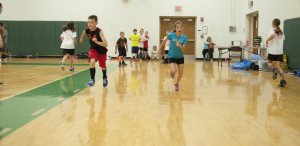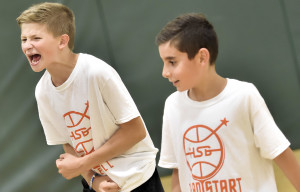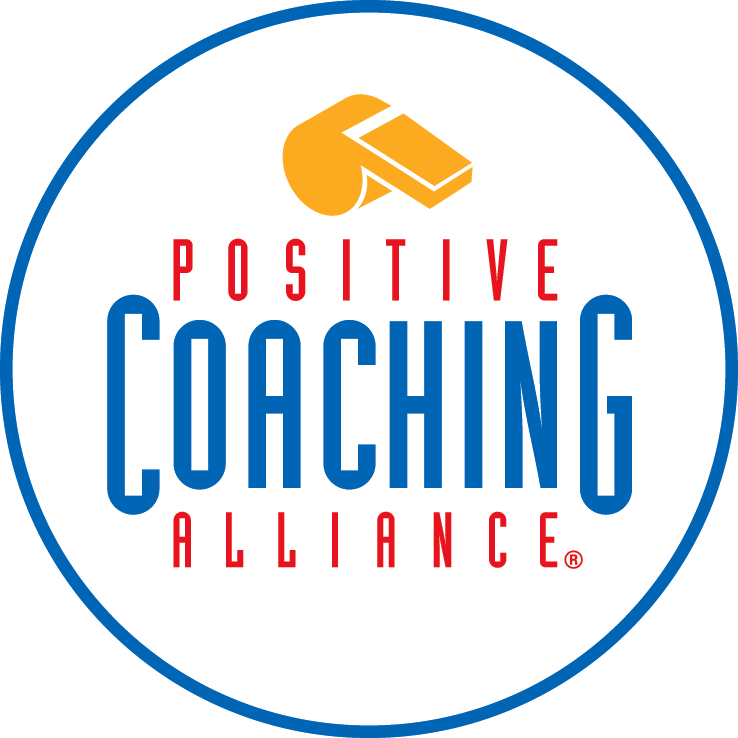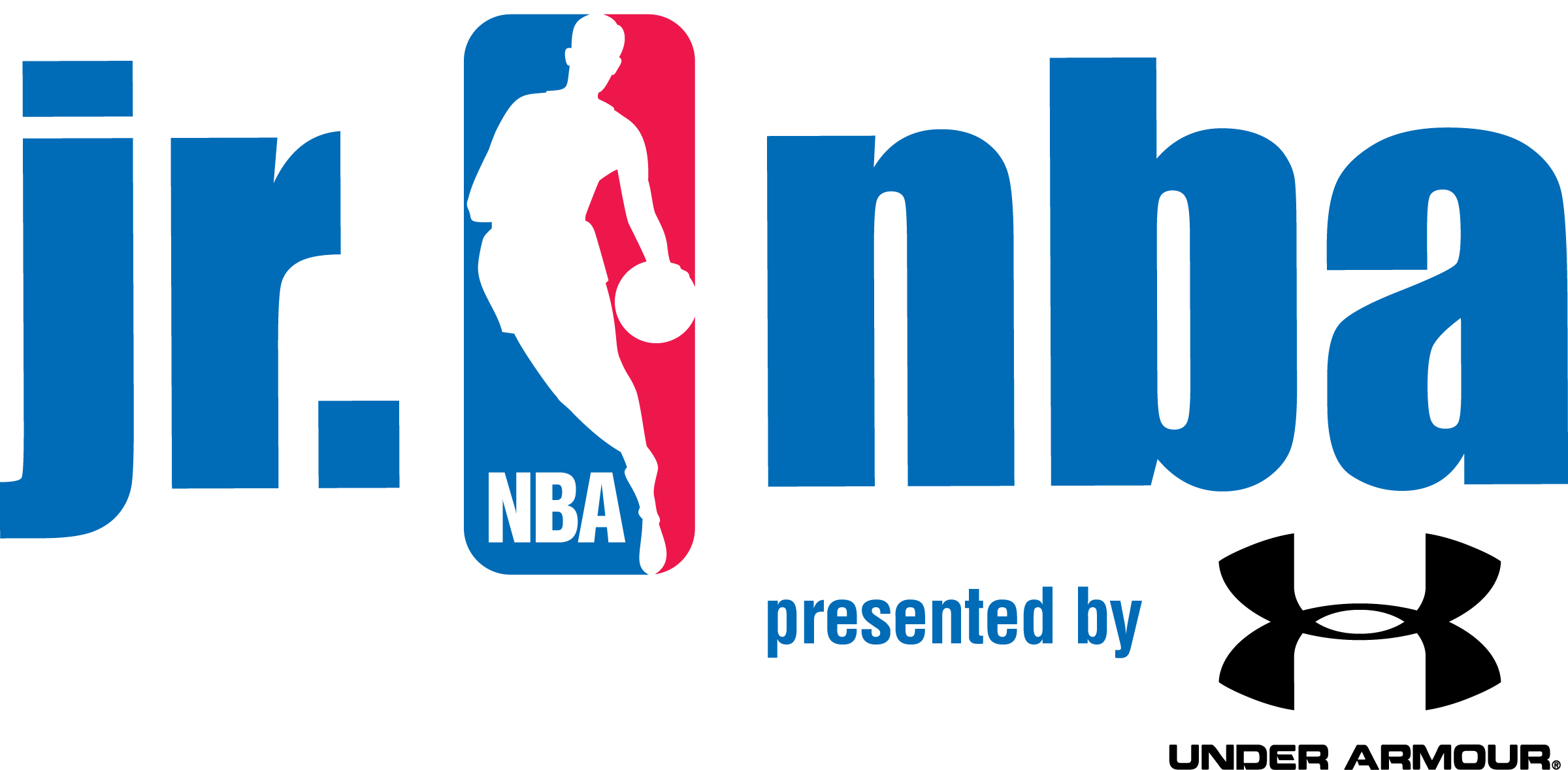
Basketball on the Edge – Pound the Rock! What the San Antonio Spurs Can Teach Us About Getting 1% Better Every Day by John O’Sullivan

The world is full of people looking for a shortcut to the top. There are none. There is only one way to have your best season ever.
Pound the rock!
Click here to read the article
Click here to register for one of our upcoming programs!
Sign up now to get a “Head Start” on your competition with our free basketball tip of the day delivered straight to your inbox. Click below, enter your email and we’ll also send you our E-Book, “Mental Toughness, Improve Your Brain – Improve Your Game”.
Basketball on the Edge – 7 Tips To Improve Your Competitiveness
 Even though I am 47 years old and have not played a “real” competitive basketball game in almost 25 years I still tend to look at the game through the lens of the player I used to be. When I was playing I loved to compete. I wanted to win and I was upset if I didn’t. In my family photo album there’s a great picture of me sitting against the bleachers after a summer tournament game almost in tears. I clearly recall being upset with my teammates after that game because in my mind they didn’t want to win as badly I did. I remember walking home in the snow after a game during my sophomore year in high school where I scored only two points and played poorly. I kept wishing I could go back and replay that game as the snow landed on my head. I often tell people the story of how my friend John and I used to ride our bikes to each other’s houses across town and play games of one on one to 100. We both wanted to win those games as badly as we wanted to win anything. I tend to remember the tough losses and poor performances more than I remember the great wins.
Even though I am 47 years old and have not played a “real” competitive basketball game in almost 25 years I still tend to look at the game through the lens of the player I used to be. When I was playing I loved to compete. I wanted to win and I was upset if I didn’t. In my family photo album there’s a great picture of me sitting against the bleachers after a summer tournament game almost in tears. I clearly recall being upset with my teammates after that game because in my mind they didn’t want to win as badly I did. I remember walking home in the snow after a game during my sophomore year in high school where I scored only two points and played poorly. I kept wishing I could go back and replay that game as the snow landed on my head. I often tell people the story of how my friend John and I used to ride our bikes to each other’s houses across town and play games of one on one to 100. We both wanted to win those games as badly as we wanted to win anything. I tend to remember the tough losses and poor performances more than I remember the great wins.
One of the most frustrating parts of coaching for me has always been helping players develop their competitive fire. Here are some ways that you can boost your own competitiveness or that of your team.
1. Know your purpose.
Understanding the purpose of why you are playing the game allows you to summon the passion and resilience to compete when things get tough. The desire to improve, maximize your skill set, or defeat the opponent across from you provides the fuel you need to compete relentlessly. The purpose of competitiveness is not just to be able to win more games, but also to be a better player.
2. Make your drills competitive
Keep track of winners and losers. Chart your results from day to day. Make competition with yourself and others into an everyday occurrence, not something that is just reserved for game day. The more opportunities you have to practice being competitive, the more you will be able to improve your ability to compete.
3. Bring your best right from the start
The most competitive players I ever played or coached against have always brought their intensity right from the beginning of the game, practice, or drill. Make it a habit to start strong and finish stronger. Otherwise, by the time you get started the game may already be lost.
4. Play more one on one
One on one teaches you to compete better than anything else. There is no one to blame if you lose. You take all the credit if you win. The game boils down to the essence of competition, me vs. you to see who is better. You’ll develop your skills and no matter what the results you’ll see your competitiveness increase. Win, and you’ll want that feeling more, lose and you’ll begin to hate losing.
5. Think the game
Many times we think of competitiveness as only being physical. Nothing could be further from the truth. The best competitors look for a mental edge on their opponent. During a game or practice you should constantly be evaluating and studying situations. This allows you to make better decisions. As an example, just knowing which hand your opponent would prefer to dribble with is an advantage that you can exploit, but you must be aware of that fact first. Competitive players know their role, know their assignment, and know their team’s plays or system. You must make split-second decisions during each moment of the game. It’s often your decision-making skills and the adjustments you make within the game that determines whether you win or lose. Mental preparation before a game, in-game mindfulness, and self-analysis after a game will help you gain a competitive edge over an opponent who doesn’t think the game. Good players think all the time. Especially after a loss. That’s how you learn not to lose very often.
6. Make it a habit
Some players are naturally more competitive than others, but no matter where you fall on the competitiveness spectrum you can constantly be aware of the need to remind yourself to compete. Using self-talk, these reminders will help keep you primed to be in your most competitive mode more often. Over time, this type of self-talk will help competing become a habit.
7. Competitiveness is not a one-time event
You can’t “get up” for the big game, and then go through the motions a week later during practice. One big effort is not enough for sustained success. True competitiveness results from a persistent and relentless approach to everything you do. Every pursuit must have meaning and be tied back in to your purpose so that your competitive drive eventually wears down and defeats your own limitations leading to more victories over your opponents as well.
Leave us a comment about this post headstartbasketball@usa.net
Click here to register for one of our upcoming programs!
Sign up now to get a “Head Start” on your competition with our free basketball tip of the day delivered straight to your inbox. Click below, enter your email and we’ll also send you our E-Book, “Mental Toughness, Improve Your Brain – Improve Your Game”.
Basketball on the Edge – 3 Key Takeaways From Kobe Bryant’s Speech To The LA Chargers. Hint: You’re Always Training
I’ve taken wisdom from Kobe Bryant before (Because of 4 am) and this week Kobe is back with a video I came across on YouTube. In the video, Kobe gives a speech welcoming the formerly San Diego Chargers to Los Angeles. The theme of Kobe’s presentation to the Chargers is to “Stay in the moment.” What can a young player learn from Kobe’s speech? I believe there are several key takeaways that can benefit any player.
1. You have to forget the last play and focus on the current play.
Kobe described how people would say he had no conscience, that he was a gunner. Why keep shooting, people would ask, when he had missed 10 shots in a row? The answer? “I have an open shot here. It is my responsibility to take the shot. As an athlete, if you become conscious of your struggles, you’re done. You have to forget about what happened and stay in the moment.”
This is obviously easier said than done, but all players can work to develop this skill. How often have you watched a game and seen a player make one mistake only to compound the mistake and turn it into another by pouting, putting their head down, or letting their effort lag? That is nothing but a bad habit. On the other hand, players that respond to a mistake by immediately and consciously focusing on the next play will begin to develop this more positive reaction into habit.
2. Learning anything is a process.
A coach in the video asks Kobe to walk them through how he stays in the moment. Kobe’s response is very insightful. He says, “It’s a process. It’s never perfect and it never will be.” In other words Kobe is saying that he never stops learning or trying to improve. Remember, He’s KOBE BRYANT one of the greatest players in NBA history and he’s telling the Chargers that he is always learning, always striving, always looking for a way to improve. If that type of growth mindset was part of Kobe’s approach then why wouldn’t YOU adopt the same outlook? I see it so often, youth or high school players who think they know it all. They can’t be bothered with coaches who are trying to help them improve. If you are going to be great at anything, including basketball, you must fall in love with the process. And the reality is THAT PROCESS NEVER ENDS, YOU SHOULD ALWAYS BE STRIVING TO LEARN MORE AND GET BETTER !
3. Your habits aren’t confined to the basketball court.
Kobe describes a game in high school when his team lost a game because the opposing team took a shot in the last seconds and instead of boxing his man out, Kobe mindlessly watched the flight of the ball towards the basket, The shot missed, his man got the rebound and made a shot at the buzzer to beat Kobe’s team. The next day Kobe was sitting in geometry class. The class was his least favorite. His mind started to drift as the teacher began the lesson. Suddenly, he made a connection. The same lack of focus on the moment that he was experiencing in geometry class had cost his team a basketball game the night before. He realized that he could work on staying in the moment off the court as well as on the court. I’ve written about championship habits in the past and the lesson Kobe is teaching here is true. The habits you build in your life don’t stay compartmentalized. If you are lazy and don’t pay attention in school your chances of being laser focused and locked in on the court are very slim. If you’re disrespectful to teachers, odds are you’ll be disrespectful to coaches. Use every moment of your life to build positive habits that will carry over into everything you do. Kobe takes the following approach, “I’m always training, I’m always preparing, I’m always practicing for the game.” It’s what you do every day, your daily actions that become habits and impact your life and your game. Don’t let opportunities to improve yourself pass you by wherever you are, even in a boring high school geometry class!
Watch the video, listen to Kobe’s words. stay in the moment, and apply these three ideas to your life.
Leave us a comment about this post headstartbasketball@usa.net
Click here to register for one of our upcoming programs!
Sign up now to get a “Head Start” on your competition with our free basketball tip of the day delivered straight to your inbox. Click below, enter your email and we’ll also send you our E-Book, “Mental Toughness, Improve Your Brain – Improve Your Game”.
Basketball on the Edge – How you can compete with players that are better “athletes” than you?

I recently read the transcript of a conversation between Jim Thompson, Founder of the Positive Coaching Alliance, and Brad Stevens, Coach of the Boston Celtics, the following paragraph is an excerpt from that interview.
I don’t think it’s a big secret. I think it all depends on how you define talent because in a lot of ways we were as talented as anybody in the country. Maybe not from a traditional basketball sense, individual to individual, though we had some very talented individuals, but we had as tough guys, physically and mentally, we had incredibly savvy players; we had guys that were all in for the team, were all in for one goal. I think, at the end of the day, those are all talents and those are all skills; I’ve heard people use the phrase “You need to be great at the things that take no talent” by being a good teammate, by being tough, by being on time, by doing all of those things every single day. Well, the longer I’m in it, the more I think those are talents in and of themselves. The best of the best can live and play with a clear mind and play with a real unselfish attitude and that’s what those teams had. I mean, they were the highest level of that in every which way. They were chock full of people that raised the energy level in the room and that didn’t care who got the glory. That’s what made it a lot of fun.
Let’s pull out one line from that paragraph, “Be great at the things that take no talent.” Although Stevens makes the case that many of those things he mentioned are in fact “talents”, the reality is that they are things that a player can control; being a great teammate, being on time, being tough. There is one thing that Coach Stevens did not mention specifically in this quote that I believe players can make one of their greatest strengths. It is not a “talent” in the traditional sense, but it has a tremendous effect on a player’s performance in games. I know that when I was a player it was something that enabled me to perform at high level against players that were arguably more “talented” than me. What was it?
Conditioning!
Simply put I was able to run longer and play harder than my opponents for sustained periods of time. That did not require “talent”. It did require me to put in the effort to be in great physical condition. Why is being in great shape such a key to improving a player’s in game performance? Let’s examine several reasons why conditioning can be one of your greatest strengths as a player.
1. It’s a great way to demoralize your opponent.
There were times I played against an opponent and I could see in their facial expressions that they were sick of chasing me around the court. Several times I can remember, other players would flat out ask me, “Don’t you ever stop moving?” I did my best to stay on the move all the time. I may not have been the fastest player end to end in a one-time sprint, but time after time after time leading to the 4th quarter? I believed I could outrun my defenders simply because I would run harder than they would. That led to easy baskets for me or my teammates. It is demoralizing to play against a player that just doesn’t stop. Being in better shape than your opponent gives you a mental edge before you even step on the floor and that edge continues to grow throughout the game as your opponent realizes they can’t keep up.
2. It gives you an edge when you and your opponent have similar basketball skill levels.
If two players have equal skill levels and one player is in better shape that player will have the advantage. If you can play at peak effort longer than the player you are competing with, eventually you will gain the advantage. That goes for competing with a teammate for a spot in the starting lineup or trying to win a game against another team.
3. It makes life miserable for a great offensive player.
No player enjoys being hounded all over the floor by a defender that just keeps coming at them no matter what. That type of defender is annoying. Offensive players prefer to go against someone that will relax or take it easy on occasion. If you are in great condition YOU can become the defender that offensive players hate to be matched up against.
4. It boosts mental toughness.
To get in great shape players must push themselves through physical and mental barriers. By extending yourself past your own perceived limits during training you will be better equipped to summon the mental fortitude required to overcome difficult obstacles during a game. In essence, you are not only training your body, but also your mind, to fight through difficult or challenging circumstances and come out victorious on the other side.
5. It actually improves your basketball skills.
How you ask? Think about times that you have tried to perform any physical skill when you were tired. Your ability to perform the skill was most likely diminished. The fact is that you are not as effective shooting, passing, dribbling, or making decisions when you are fatigued. Therefore, it stands to reason that if you are not tired throughout the game, your ability to execute will remain at a high level, while those players in poor condition will likely see their performance drop off as they become fatigued.
I truly believe that one of my greatest strengths as a player was my ability to work harder and longer than my opponents. I took great pride in being in the best possible physical condition. (Although I often wish that I was growing up today with the knowledge we have about training and nutrition that wasn’t widespread when I was playing).
Every player can control their conditioning. Think about this quote from Kevin Garnett, “Your greatest asset should be your work ethic.” Make a commitment to get yourself in great shape if you want to be a great player. Be willing to do what few others will do and pay the price of being the best conditioned player on your team. You’ll reap the rewards now and for seasons to come!
Leave us a comment about this post headstartbasketball@usa.net
Click here to register for one of our upcoming programs!
Sign up now to get a “Head Start” on your competition with our free basketball tip of the day delivered straight to your inbox. Click below, enter your email and we’ll also send you our E-Book, “Mental Toughness, Improve Your Brain – Improve Your Game”.
Basketball on the Edge – The Science of Developing Mental Toughness in Your Health, Work, and Life By James Clear

This week’s post will get you started down the road to developing more mental toughness. A great article for players, parents, and coaches that is full of ideas for how you can improve your game and improve your life.
“Have you ever wondered what makes someone a good athlete? Or a good leader? Or a good parent? Why do some people accomplish their goals while others fail?
What makes the difference?
Usually we answer these questions by talking about the talent of top performers. He must be the smartest scientist in the lab. She’s faster than everyone else on the team. He is a brilliant business strategist.
But I think we all know there is more to the story than that.
In fact, when you start looking into it, your talent and your intelligence don’t play nearly as big of a role as you might think. The research studies that I have found say that intelligence only accounts for 30% of your achievement — and that’s at the extreme upper end.
What makes a bigger impact than talent or intelligence?”
Click here to read the article by James Clear
Leave us a comment about this post headstartbasketball@usa.net


